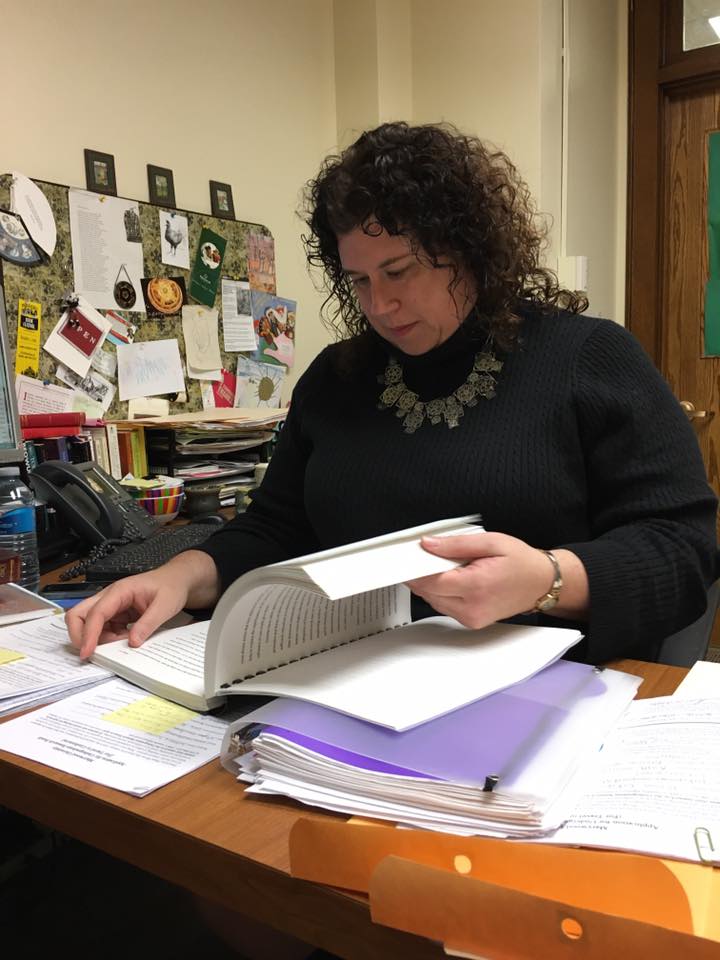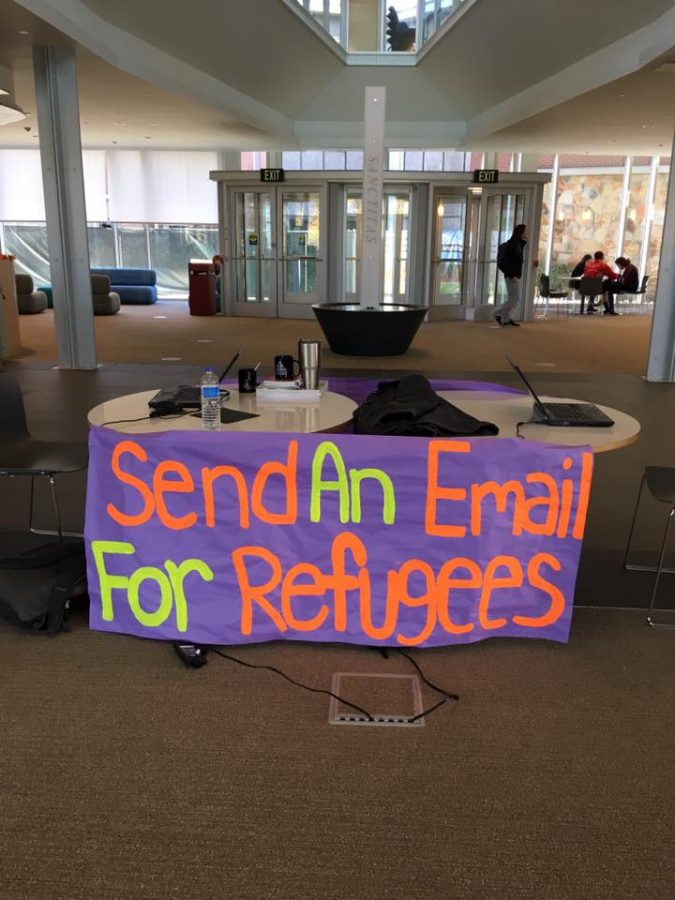Students engage in letter writing campaign for refugees’ rights
Photo credit/ Amanda Duncklee
Students were able to use the laptops on the table to send letters.
November 10, 2016
Students from participated in a letter writing campaign to encourage Pennsylvania senators and a representative to support refugees and their quest for safety.
From 11 a.m. to 2 p.m. in the Learning Commons, students sent emails to Pennsylvania Senators Pat Toomey and Bob Casey, Jr., as well as Representative Matthew Cartwright in order to petition on behalf of displaced refugees. Catholic Relief Services (CRS) organized the campaign and various colleges with CRS ambassadors brought the event to their schools.
Catholic Relief Services (CRS) is an American based service organization that strives to “assist the poor and vulnerable overseas” and “uphold the sacredness and dignity of all human life,” according to their website. Maria Temples, senior nutrition and dietetics major, is the president of the Marywood branch of CRS for the second consecutive year.
“People are being displaced on a regular basis. Letting Congress know through letters is a way to raise awareness,” said Temples of the event.
CRS provided a template for the letter. Students could sign their name, add to the letter or write a completely different letter. Temples noted the turnout of students was “really great.”
“I think raising awareness about social issues and advocating to people who can’t advocate for themselves is a really important thing to do,” said Temples. “Understanding the problems people are going through and finding long-term solutions is the goal.”
Letter writing is certainly not a new concept as people have been using writing as a communication medium for thousands of years. Dr. Erin Sadlack, associate professor and chair of the English Department, is familiar with this notion.
On May 4, 2005, Sadlack published her dissertation titled, “In Writing it May Be Spoke: The Politics of Women Letter Writing, 1377-1607.” Her dissertation focuses on the power of letter writing as well as how people, in this case women, can present and protect their agency.
“In the late medieval and early modern times, people thought of letters as a special connection between the writer and sender,” said Sadlack. “It became a tangible manifestation of that bond.”
Sadlack noted that people “depend on the notion that the government would grant justice to people” and that the use of letters as a petition to those in power represents a healthy political system.
“Petitioning was powerful and remains powerful,” said Sadlack. “[Letters] can have an effect on overall lives.”
In addition to this afternoon’s campaign, there will be a vigil in support of refugees this evening. Attendees can gather in the Morgan Memorial Garden in front of the Learning Commons at 8 p.m. for a candlelit reading, testimonial from refugees and refreshments.
Contact the writer: alduncklee@m.marywood.edu
Twitter: @ADuncklee_TWW

Dr. Erin Sadlack flips through her dissertation that focuses on the importance of letter writing.





